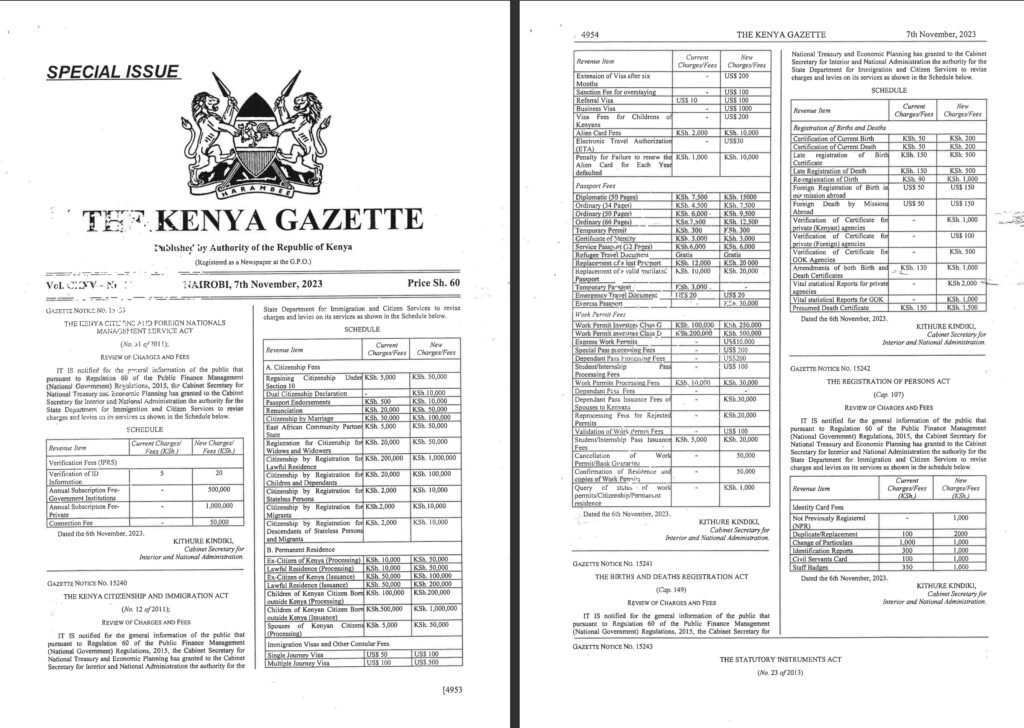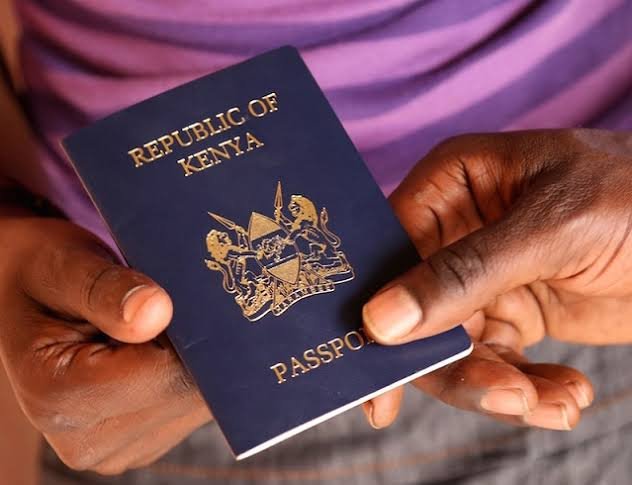The Kenyan government announces charges for acquiring new IDs and raises fees for various identification services.
Increased levies include birth certificates, ID card modifications, civil servants’ cards, and staff badges.
Kenyan government has introduced charges for acquiring new identification cards, marking the end of free issuance. According to a Gazette Notice dated November 6 and issued by Interior Cabinet Secretary Kithure Kindiki, Kenyans turning 18 years of age will now have to pay Sh1,000 for their Identity Card.
Furthermore, individuals seeking replacements for lost or damaged IDs will face a twentyfold increase in fees, now amounting to Sh2,000, up from the previous Sh100.

The changes stem from Regulation 60 of the Public Finance Management (National Government) Regulations, 2015, granting the Cabinet Secretary for Interior and National Administration the authority to revise charges and levies on identification services.
The government has also raised fees for various identification-related services. Obtaining a birth certificate has seen its cost rise from Ksh50 to Ksh200. Modifying details on an ID card will now incur a charge of Ksh1,000, while those seeking identification reports will need to pay Ksh1,000, a substantial increase from Ksh300.
Moreover, charges for acquiring civil servants’ cards have escalated from Ksh100 to Ksh1,000, and individuals in need of staff badges will have to pay Ksh1,000, up from the previous Ksh350.
Additionally, the government has revised fees for late registration of birth certificates, with late registration now costing Ksh150 and late registration of death certificates requiring Ksh500, an increase from Ksh150.
The pilot launch of the Maisha Card will issue all Kenyans turning 18 with an ID on a trial basis. This pilot project aims to identify and address any potential issues before the full-scale rollout.
According to the Permanent Secretary (PS), approximately 10,000 individuals apply for new identification cards daily, with an additional 5,000 seeking duplicates. This pilot process will assist the government in assessing any issues that may arise with the digital-based Maisha Namba before its full implementation.






You must be logged in to post a comment.